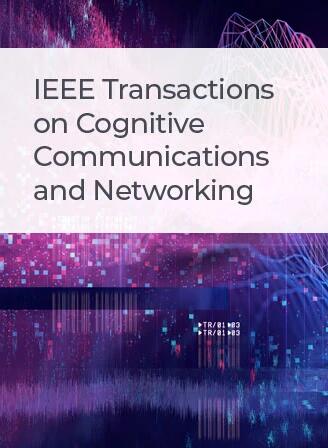移动边缘网络中激励驱动和节能的联邦学习
IF 7
1区 计算机科学
Q1 TELECOMMUNICATIONS
IEEE Transactions on Cognitive Communications and Networking
Pub Date : 2025-01-20
DOI:10.1109/TCCN.2025.3531464
引用次数: 0
摘要
联邦学习(FL)作为一种新的分布式学习方法,允许多个异构客户端在不泄露私有数据的情况下协同训练模型。但是,如果没有适当的补偿,自私的客户可能不愿意参加FL培训。此外,移动边缘网络中客户端的特点(如可用资源有限)也可能降低FL的效率,增加培训成本。为了解决这些问题,本文提出了一种具有客户激励和模型压缩(CAFL)的成本意识模型框架,旨在最大限度地降低训练成本,同时保证全局模型的准确性。在CAFL中,我们采用逆向拍卖进行激励设计,其中基站(BS)作为拍卖商选择客户,并确定本地训练轮次和模型压缩率。同时,客户作为投标人培训本地模型并获得付款。我们将客户选择、局部训练和模型压缩的过程建模为混合整数非线性规划。因此,我们提出了一种改进的基于软行为者临界的客户选择和模型压缩算法来解决优化问题,并设计了一种基于vickrey - clarke - groves的支付规则来补偿客户的成本。最后,进行了大量的仿真实验来评估所提出方法的性能。结果表明,在各种场景下,所提出的方法在BS成本方面优于其他基准。本文章由计算机程序翻译,如有差异,请以英文原文为准。
Incentive-Driven and Energy Efficient Federated Learning in Mobile Edge Networks
Federated Learning (FL), as a new distributed learning approach, allows multiple heterogeneous clients to cooperatively train models without disclosing private data. However, selfish clients may be unwilling to participate in FL training without appropriate compensation. In addition, the characteristics of clients in mobile edge networks (e.g., limited available resources) may also reduce the efficiency of FL and increase training cost. To solve these challenges, this paper proposes a Cost-Aware FL framework with client incentive and model compression (CAFL), aiming to minimize the training cost while ensuring the accuracy of the global model. In CAFL, we employ the reverse auction for incentive design, where Base Station (BS) acts as the auctioneer to select clients, and determines the local training rounds and model compression rates. Meanwhile, clients act as the bidders to train local models and get payments. We model the process of client selection, local training, and model compression as Mixed-Integer Non-Linear programming. Accordingly, we propose an improved Soft Actor-Critic-based client selection and model compression algorithm to solve the optimization problem, and design a Vickrey-Clarke-Groves-based payment rule to compensate for clients’ cost. Finally, extensive simulation experiments are conducted to evaluate the performance of the proposed method. The results show that the proposed method outperforms other benchmarks in terms of BS’s cost under various scenarios.
求助全文
通过发布文献求助,成功后即可免费获取论文全文。
去求助
来源期刊

IEEE Transactions on Cognitive Communications and Networking
Computer Science-Artificial Intelligence
CiteScore
15.50
自引率
7.00%
发文量
108
期刊介绍:
The IEEE Transactions on Cognitive Communications and Networking (TCCN) aims to publish high-quality manuscripts that push the boundaries of cognitive communications and networking research. Cognitive, in this context, refers to the application of perception, learning, reasoning, memory, and adaptive approaches in communication system design. The transactions welcome submissions that explore various aspects of cognitive communications and networks, focusing on innovative and holistic approaches to complex system design. Key topics covered include architecture, protocols, cross-layer design, and cognition cycle design for cognitive networks. Additionally, research on machine learning, artificial intelligence, end-to-end and distributed intelligence, software-defined networking, cognitive radios, spectrum sharing, and security and privacy issues in cognitive networks are of interest. The publication also encourages papers addressing novel services and applications enabled by these cognitive concepts.
 求助内容:
求助内容: 应助结果提醒方式:
应助结果提醒方式:


